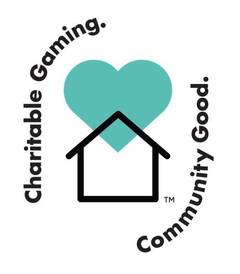Now more than ever, Canada needs the light of Chanukah
When Buzz Aldrin was asked what he would cherish most about his adventure to the moon, he paused and said, “Seeing the glowing Earth surrounded by the dark of space.”
My father worked for nearly a decade at Grumman Aerospace, which designed and built the Lunar Landing Module that put Armstrong and Aldrin onto the surface of the moon. His home office was filled with Apollo 11 memorabilia: signed pictures, lapel buttons, special minted coins…you name it, he had it. For a young boy, it seemed magical. People flying into space, seeing the world from above, it’s what I wanted to do. And though career day at school taught me I wasn’t the only boy dreaming of being an astronaut, I soon realized I didn’t have to fly into space to touch the heavens. I think that was the moment I decided to be a rabbi.
Rabbi Aaron Flanzraich’s father’s lapel pin, a part of Mr. Flanzraich’s Apollo 11 memorabilia collection.
As any rabbi will tell you, the Jewish calendar is filled with moments of celebration and mourning — sometimes both at the same time. Of all of these, Chanukah and Passover are the most observed and cherished moments for Jews of all stripes. And it’s easy to understand why.
Both tell the same message with different stories. In Passover, the enslaved Jews are taken to freedom. In Chanukah, the persecuted Jews fight for their freedom. In both, we discover a people under the jackboot of persecution and despair who find redemption. In the story of Passover, it is God who delivers; in the story of Chanukah, which takes place thousands of years later, it is the Jews who deliver themselves. Chanukah celebrates the redemption learned from God at Passover, now enacted by the hands of humans.
This tale of despair and then rejuvenation is captured by the ancient rabbis, who saw these stories as a chronology of “things that begin with misery and end with renewal.” These stories have a message for all of humanity — not only for Jews. Our message is the message of the better within ourselves, and by seeing the better in ourselves, we see a better world. It is a message for all Canadians as we witness the growing influence of hatred and violence, of evil words like “final solution” that once seemed unthinkable and so foreign in our peaceful nation.
As the sun sets this year on December 25th, Jewish families will gather in their homes and light the first of eight candles to correspond to the eight days of Chanukah. We do it because Jewish tradition teaches that when the Jews regained their freedom from the Seleucid Greeks, the first thing they did was relight the ancient menorah in the Holy Temple of Jerusalem.
We no longer have that menorah. Nor the Holy Temple. But there remains within each of us light and we are called to share it with the world on the darkest days of the calendar year. In doing so we bring heaven to this planet we all share.
Since October 7, 2023, Jewish communities worldwide have been unsettled. The violence against Jewish schools, synagogues and institutions that was once associated with a dark era in Europe’s past has found a home in modern Canada. My synagogue now has bulletproof glass, surveillance cameras, magnetic locks, and full-time security. The Jewish school down my Chanukah has a police command vehicle in front all the time. What would have been unimaginable a decade ago is now imaginable and deeply disturbing. Parents ask me how they can manage the fear and anxiety in their children when they walk into a school or a synagogue?
I tell them the answer can be found echoing through the story of the Jewish people.
Rabbi Hugo Gryn was a child in Auschwitz when his father melted his precious margarine ration to light a Hanukkah candle. Young Hugo angrily protested the frittering away of food. His father said, "My child, we know you can live three days without water. You can live for three weeks without food. But you cannot live for three minutes without hope."
Then, as now, Chanukah is the call not to despair. We must live in hope.
It is to look at the night sky and not think the stars, who are so few in number, must be losing to the great darkness all around.
Because once there was a time when the sky was only dark.
If you ask me, the light is winning.
- Rabbi Aaron Flanzraich



